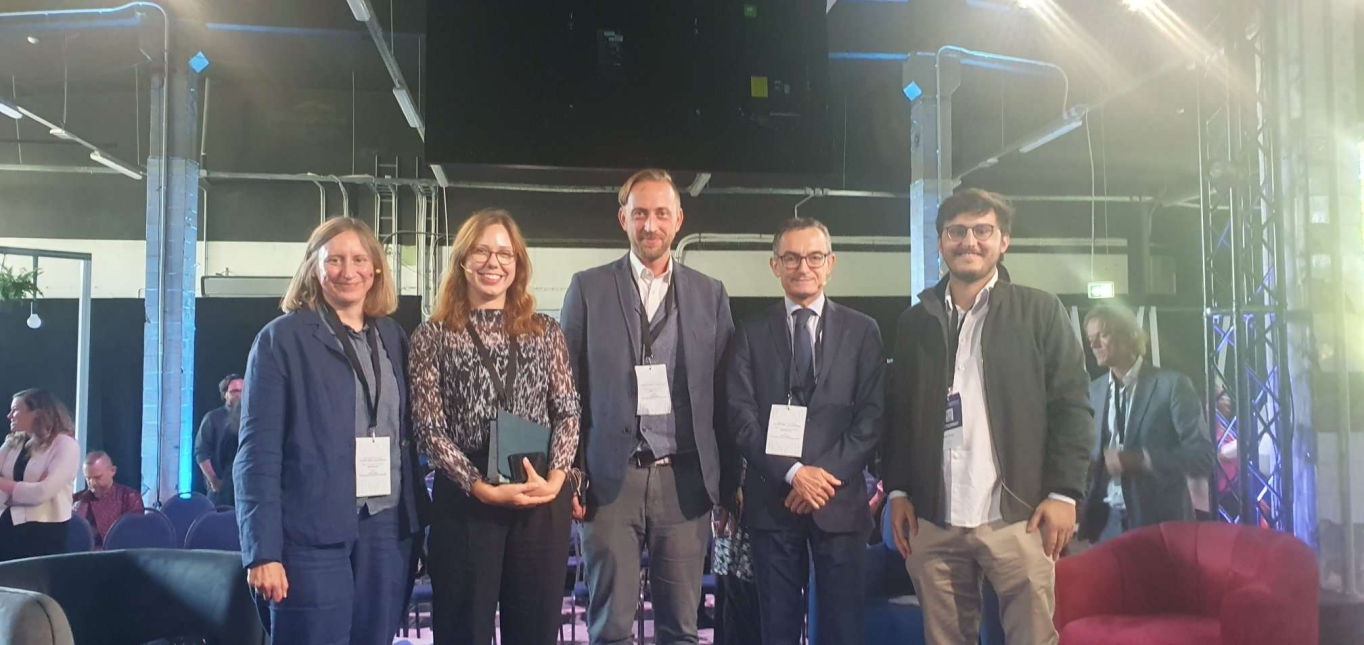
The 8th Open Government Partnership (OGP) Global Summit unfolded in Tallinn, Estonia, on 6-7 September 2023, bringing together heads of state, government officials, civil society representatives, and policymakers from across the world. Their shared mission: exploring the transformative power of technology while upholding democracy, transparency, and accountability.
ECNL’s Karolina Iwanska moderated a session on the challenging but fascinating topic of public sector accountability in the age of artificial intelligence (AI). The session aptly titled ‘Don’t blame it on the Algorithm: Public Sector Accountability in the Age of AI’. Digital governance is the fastest-growing policy area in current OGP action plans, with a particular focus on accountability surrounding government use of algorithms.
Joined by an excellent panel of speakers, including Sue Bateman from the Central Digital and Data Office of the UK Government, Krzysztof Izdebski representing the Stefan Batory Foundation in Poland, Pedro Martin of Data Privacy Brazil, and Juan Jesus Torres, General Secretary of Digital Administration at the Spanish government, the session aimed to understand three possibilities to ensure a human rights-based use of emerging technology by governments:
- Regulatory power: the power balance between tech and government being still on the side of governments;
- Open government’s commitment to steer that power democratically and in collaboration with civil society;
- Cross-sector collaboration, between civil society, tech companies, and governments.
Speakers brought up many insightful perspectives during the session, read the full live Twitter thread here.
Here are some highlights:
- Krzystof Izdebski shared his involvement in a case that fought for public access to information concerning the inner workings of an algorithm, specifically in the context of appointing judges. - “We need transparency of algorithms to create trust. Algorithms are not just technical information but also is a human rights issue and this needs to be better explained to courts and decision makers.”
- Building upon this, Sue Bateman discussed her office's publication of national algorithmic transparency standards aimed at aiding public sector bodies. - “We must make requirements of transparency and fairness clear to our private sector partners. This can be done through procurement/contracting processes and being clear on what solution is needed to guide responsible use of tech.”
- Given Spain's current presidency in the Council of the EU and its leadership in EU AI Act negotiations, Juan Jesus Torres brought forth Spain's Charter of Digital Rights as a pivotal instrument. This Charter addresses issues related to discrimination, equality, and neutrality in the digital realm. Click here for the Charter.
- In drawing connections between the EU AI Act and the forthcoming Brazilian AI regulation for public sector accountability, Pedro Martin stressed the importance of a robust regulatory process. He highlighted that involving a broad spectrum of participants in law-making generates more resilient answers and innovative ideas. - “Civil society has always been a big part of organisations that bring forward collective redress issues; there is also a strong digital civil rights movement. Its role is important to address social inequality and other issues posed by tech.”
There is still much work to be done in this dynamic field. At ECNL we are advocating for public sector accountability and human rights safeguards on the regional level, including in the EU AI Act and the Council of Europe Convention on AI. On the international level, we work with the United Nations on its Global Digital Compact as well as the Human Rights Council on resolutions on new and emerging technology. We also support partners on the national level: for example, we provide expertise and lessons learned from European processes to Data Privacy Brazil.
The insights shared at the 2023 OGP Global Summit exemplify the commitment of global leaders and advocates to navigate the intricate landscape of technology, ensuring it serves the common good and preserves fundamental democratic values and human rights.